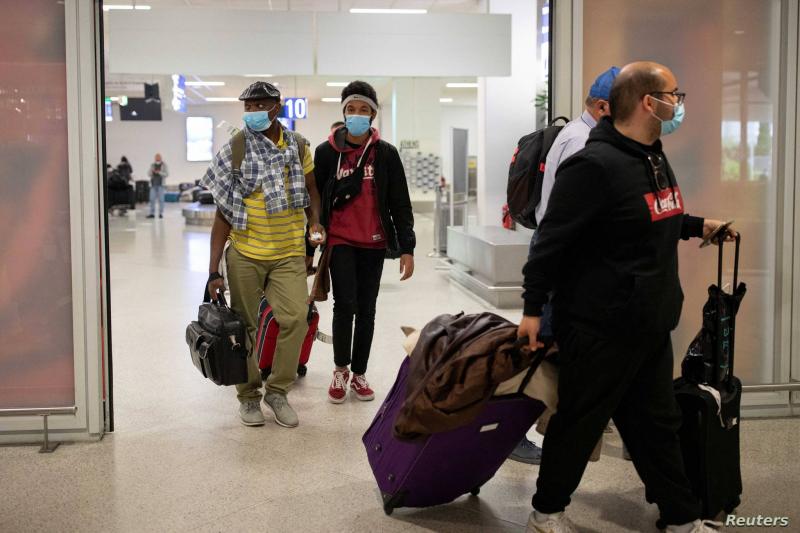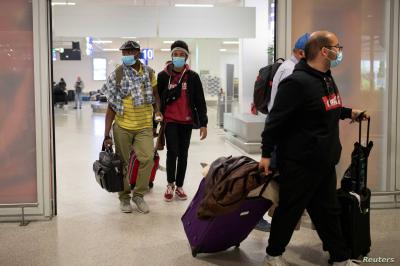Countries around the world have realized the impossibility of shutting down airports again due to the pandemic.
Under the title "Did You Miss Traveling? A Viable Solution for Safe Travel During COVID-19," the website Al-Arabiya.net published an article discussing a viable travel solution during the pandemic that was reached by a new American study. The article noted that it is no longer a secret that international air travel is one of the main reasons for the spread of the coronavirus; however, it is a necessity. The article continued, stating that with all countries coming to terms with the impossibility of halting airport operations again, as happened last year, science has turned to find effective solutions to deal with COVID-19 while maintaining freedom of movement.
In this context, new research from the U.S. concluded that keeping the middle seat on airplanes empty reduces the chance of transmission by up to 57%. The research conducted by the Centers for Disease Control and Prevention (CDC) indicated that leaving the middle seat empty in all rows of commercial aircraft reduces the opportunity for virus transmission by between 23% to 57%. However, the percentage varied based on different aircraft models, considering there are single-aisle and wide-body planes with two aisles.
The key takeaway is the "distance maintenance." According to the results, data suggests that increasing space between individuals inside airplane cabins and reducing passenger density can help lessen the potential exposure to COVID-19 during air travel. The CDC's guidelines recommend avoiding travel for those who have not been fully vaccinated against COVID-19 and wearing face masks throughout the flight to effectively reduce transmission risks via airborne particles.
The greatest challenge is that international air travel is one of the main causes of the spread of the coronavirus, which emerged from China in late 2019 before becoming a global pandemic, causing unprecedented chaos. Social distancing inside airplanes poses a challenge for global airlines, which are trying to minimize losses caused by the pandemic's repercussions after imposing lockdown restrictions and closing airports in many countries.
It is worth noting that the World Health Organization has warned against complacency regarding the necessary health precautions surrounding the pandemic. Dr. Ahmed Al-Mandhari, the regional director for the Eastern Mediterranean, acknowledged the difficulty in determining the scale of cases in the third wave, revealing that four more vaccines are currently under evaluation and are expected to be approved soon. Numbers reflect a marked increase in infections, especially with the discovery of new virus variants that have led to increased transmission and spread.
On a global scale, as of now, the number of reported cases has surpassed 136 million, with the death toll reaching 3 million, and the virus has spread to 210 countries around the world. Al-Mandhari added: "As we see, these are unprecedented figures in history."




